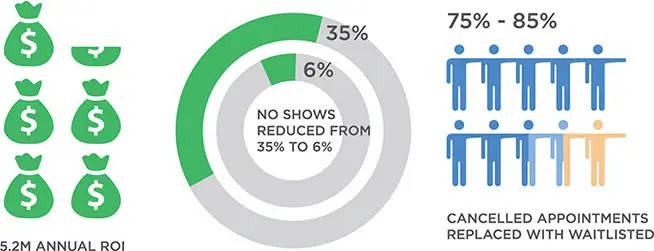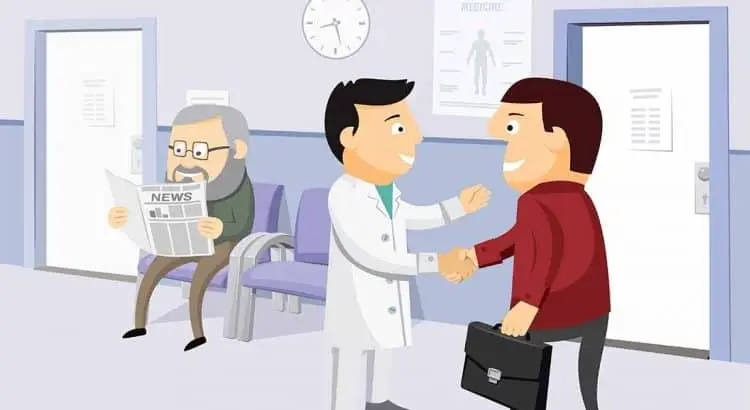Estimated reading time: 2 minutes
Missed that appointment reminder from your doctor?
That’ll be $50, please.
No-shows and late arrivals are common problems for many healthcare providers. They create gaps in scheduling, reduce revenue, and make it difficult to run an efficient practice.
Many doctors are turning to no-show fees to try to reduce the number of patients showing up late or not showing up at all. On one hand, it makes sense: missed appointments alone cost the U.S. economy an estimated $150 billion each year. But punishing your patients isn’t the right answer either.
Instead, communicate more with patients before their appointment through automated appointment reminders and confirmations to make sure they show up without any heavy lifting required by you or your staff. Using these tips and tricks, you can easily set up customized healthcare appointment reminders for your practice.
Concerned about HIPAA? Learn more about our HIPAA-compliant appointment reminders and security features.
Automate Appointment Communication
We conducted a survey looking at 178,000 random messages:
Automated messaging and reminder systems for appointments reduced no-shows by nearly 50% across all providers. That no-show reduction translates to huge pay gains, simply by having more people show up for your services.
However, the results were even more staggering for one healthcare business in our study. The business has multiple clinics and locations and has 200-300 scheduled appointments per day. After implementing Apptoto, their no-shows fell from 35% to 6%. Better yet, they were able to fill 75-85% of their canceled appointments with a waitlisted patient. That translated to $5.2 million in annual ROI after implementing Apptoto.

Increase the Effectiveness of Your Healthcare Appointment Reminders
Our study also identified several other best practices for doctor appointment confirmations.
Appointment confirmations made via phone, email, or SMS were 90% reliable (i.e. only 10% were rescheduled.)
SMS messaging is the most reliable channel for delivering appointment reminders. Texts get a 30% reply rate for appointment confirmations vs. 23% for phone calls and 12% for emails.
Reminders sent via SMS at 6 p.m. the day prior to the appointment worked best, with only a 6.5% reschedule rate.
Personalized messages that focus on the importance of the appointment and/or provide critical details like directions and parking information perform better than generic messages.
We analyzed millions of healthcare appointment reminders to create The Complete Guide to Appointment Reminders ebook. It’s filled with best practices to help you create a patient reminder strategy that works!



